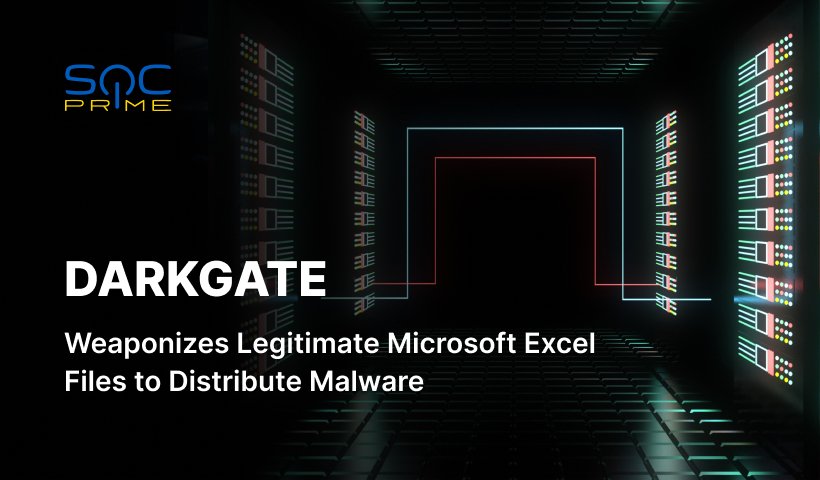| tuuid |
Collects anonymous data related to the user's visits to the website, such as the
number of visits, average time spent on the website and what pages have been
loaded.
|
| tuuid_last_update |
Collects anonymous data related to the user's visits to the website, such as the
number of visits, average time spent on the website and what pages have been
loaded.
|
| um |
Collects anonymous data related to the user's visits to the website, such as the
number of visits, average time spent on the website and what pages have been
loaded.
|
| umeh |
Collects anonymous data related to the user's visits to the website, such as the
number of visits, average time spent on the website and what pages have been
loaded.
|
| na_sc_x |
Used by the social sharing platform AddThis to keep a record of parts of the
site that has been visited in order to recommend other parts of the site.
|
| APID |
Collects anonymous data related to the user's visits to the website. |
| IDSYNC |
Collects anonymous data related to the user's visits to the website. |
| _cc_aud |
Collects anonymous statistical data related to the user's website visits, such
as the number of visits, average time spent on the website and what pages have
been loaded. The purpose is to segment the website's users according to factors
such as demographics and geographical location, in order to enable media and
marketing agencies to structure and understand their target groups to enable
customised online advertising.
|
| _cc_cc |
Collects anonymous statistical data related to the user's website visits, such
as the number of visits, average time spent on the website and what pages have
been loaded. The purpose is to segment the website's users according to factors
such as demographics and geographical location, in order to enable media and
marketing agencies to structure and understand their target groups to enable
customised online advertising.
|
| _cc_dc |
Collects anonymous statistical data related to the user's website visits, such
as the number of visits, average time spent on the website and what pages have
been loaded. The purpose is to segment the website's users according to factors
such as demographics and geographical location, in order to enable media and
marketing agencies to structure and understand their target groups to enable
customised online advertising.
|
| _cc_id |
Collects anonymous statistical data related to the user's website visits, such
as the number of visits, average time spent on the website and what pages have
been loaded. The purpose is to segment the website's users according to factors
such as demographics and geographical location, in order to enable media and
marketing agencies to structure and understand their target groups to enable
customised online advertising.
|
| dpm |
Via a unique ID that is used for semantic content analysis, the user's
navigation on the website is registered and linked to offline data from surveys
and similar registrations to display targeted ads.
|
| acs |
Collects anonymous data related to the user's visits to the website, such as the
number of visits, average time spent on the website and what pages have been
loaded, with the purpose of displaying targeted ads.
|
| clid |
Collects anonymous data related to the user's visits to the website, such as the
number of visits, average time spent on the website and what pages have been
loaded, with the purpose of displaying targeted ads.
|
| KRTBCOOKIE_# |
Registers a unique ID that identifies the user's device during return visits
across websites that use the same ad network. The ID is used to allow targeted
ads.
|
| PUBMDCID |
Registers a unique ID that identifies the user's device during return visits
across websites that use the same ad network. The ID is used to allow targeted
ads.
|
| PugT |
Registers a unique ID that identifies the user's device during return visits
across websites that use the same ad network. The ID is used to allow targeted
ads.
|
| ssi |
Registers a unique ID that identifies a returning user's device. The ID is used
for targeted ads.
|
| _tmid |
Registers a unique ID that identifies the user's device upon return visits. The
ID is used to target ads in video clips.
|
| wam-sync |
Used by the advertising platform Weborama to determine the visitor's interests
based on pages visits, content clicked and other actions on the website.
|
| wui |
Used by the advertising platform Weborama to determine the visitor's interests
based on pages visits, content clicked and other actions on the website.
|
| AFFICHE_W |
Used by the advertising platform Weborama to determine the visitor's interests
based on pages visits, content clicked and other actions on the website.
|
| B |
Collects anonymous data related to the user's website visits, such as the number
of visits, average time spent on the website and what pages have been loaded.
The registered data is used to categorise the users' interest and demographical
profiles with the purpose of customising the website content depending on the
visitor.
|
| 1P_JAR |
These cookies are used to gather website statistics, and track conversion
rates.
|
| APISID |
Google set a number of cookies on any page that includes a Google reCAPTCHA.
While we have no control over the cookies set by Google, they appear to include
a mixture of pieces of information to measure the number and behaviour of Google
reCAPTCHA users.
|
| HSID |
Google set a number of cookies on any page that includes a Google reCAPTCHA.
While we have no control over the cookies set by Google, they appear to include
a mixture of pieces of information to measure the number and behaviour of Google
reCAPTCHA users.
|
| NID |
Google set a number of cookies on any page that includes a Google reCAPTCHA.
While we have no control over the cookies set by Google, they appear to include
a mixture of pieces of information to measure the number and behaviour of Google
reCAPTCHA users.
|
| SAPISID |
Google set a number of cookies on any page that includes a Google reCAPTCHA.
While we have no control over the cookies set by Google, they appear to include
a mixture of pieces of information to measure the number and behaviour of Google
reCAPTCHA users.
|
| SID |
Google set a number of cookies on any page that includes a Google reCAPTCHA.
While we have no control over the cookies set by Google, they appear to include
a mixture of pieces of information to measure the number and behaviour of Google
reCAPTCHA users.
|
| SIDCC |
Security cookie to protect users data from unauthorised access. |
| SSID |
Google set a number of cookies on any page that includes a Google reCAPTCHA.
While we have no control over the cookies set by Google, they appear to include
a mixture of pieces of information to measure the number and behaviour of Google
reCAPTCHA users.
|
| __utmx |
This cookie is associated with Google Website Optimizer, a tool designed to help
site owners improve their wbesites. It is used to distinguish between two
varaitions a webpage that might be shown to a visitor as part of an A/B split
test. This helps site owners to detemine which version of a page performs
better, and therefore helps to improve the website.
|
| __utmxx |
This cookie is associated with Google Website Optimizer, a tool designed to help
site owners improve their wbesites. It is used to distinguish between two
varaitions a webpage that might be shown to a visitor as part of an A/B split
test. This helps site owners to detemine which version of a page performs
better, and therefore helps to improve the website.
|
 4 min read
CVEs
Fighting Ursa (aka APT28) Attack Detection: Adversaries Target Diplomats Using a Car for Sale as a Phishing Lure to Spread HeadLace Malware
4 min read
CVEs
Fighting Ursa (aka APT28) Attack Detection: Adversaries Target Diplomats Using a Car for Sale as a Phishing Lure to Spread HeadLace Malware
 3 min read
CVEs
CVE-2024-37085 Detection: Ransomware Groups Actively Exploit a Newly Patched Vulnerability in VMware ESXi Hypervisors to Gain Full Administrative Privileges
3 min read
CVEs
CVE-2024-37085 Detection: Ransomware Groups Actively Exploit a Newly Patched Vulnerability in VMware ESXi Hypervisors to Gain Full Administrative Privileges
 4 min read
CVEs
Andariel Attack Detection: FBA, CISA, and Partners Warn of an Increasing Global Cyber-Espionage Campaign Linked to the North Korean State-Sponsored Group
4 min read
CVEs
Andariel Attack Detection: FBA, CISA, and Partners Warn of an Increasing Global Cyber-Espionage Campaign Linked to the North Korean State-Sponsored Group
 4 min read
CVEs
Akira Ransomware Group Is on the Rise: Hackers Target the Airline Industry in LATAM
4 min read
CVEs
Akira Ransomware Group Is on the Rise: Hackers Target the Airline Industry in LATAM
 3 min read
CVEs
UAC-0102 Phishing Attack Detection: Hackers Steal Authentication Data Impersonating the UKR.NET Web Service
3 min read
CVEs
UAC-0102 Phishing Attack Detection: Hackers Steal Authentication Data Impersonating the UKR.NET Web Service
 3 min read
CVEs
UAC-0057 Attack Detection: A Surge in Adversary Activity Distributing PICASSOLOADER and Cobalt Strike Beacon
3 min read
CVEs
UAC-0057 Attack Detection: A Surge in Adversary Activity Distributing PICASSOLOADER and Cobalt Strike Beacon
 4 min read
CVEs
UAC-0063 Attack Detection: Hackers Target Ukrainian Research Institutions Using HATVIBE, CHERRYSPY, and CVE-2024-23692
4 min read
CVEs
UAC-0063 Attack Detection: Hackers Target Ukrainian Research Institutions Using HATVIBE, CHERRYSPY, and CVE-2024-23692
 3 min read
CVEs
DarkGate Malware Detection: Adversaries Exploit Microsoft Excel Files to Spread a Harmful Software Package
3 min read
CVEs
DarkGate Malware Detection: Adversaries Exploit Microsoft Excel Files to Spread a Harmful Software Package
 3 min read
CVEs
Kimsuky APT Campaign Detection Targeting Japanese Organizations
3 min read
CVEs
Kimsuky APT Campaign Detection Targeting Japanese Organizations
 3 min read
CVEs
Kimsuky APT Attack Detection: North Korean Hackers Abuse the TRANSLATEXT Chrome Extension to Steal Sensitive Data
3 min read
CVEs
Kimsuky APT Attack Detection: North Korean Hackers Abuse the TRANSLATEXT Chrome Extension to Steal Sensitive Data